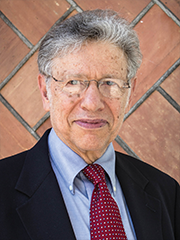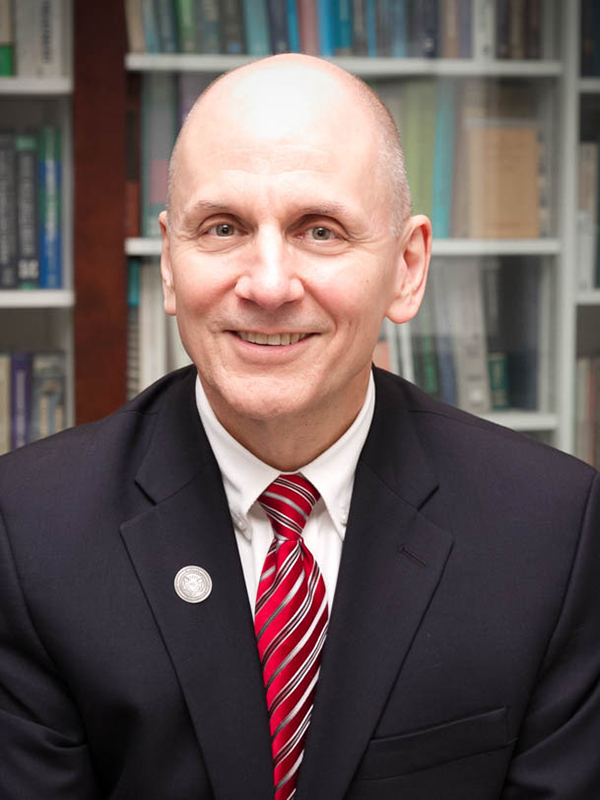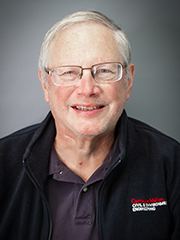
Jacobo Bielak, P.E.
Hamerschlag University Professor Emeritus, Civil and Environmental Engineering
Bio
Jacobo Bielak is Hamerschlag University Professor Emeritus in the Department of Civil and Environmental Engineering at Carnegie Mellon University. His research interests are in earthquake engineering, engineering seismology, computational seismology, computational mechanics, and structural health monitoring. Bielak was a member of the original Applied Technology Council (ATC) committee that drafted the first seismic provisions for soil-structure interaction in the US, based mainly on his work. These provisions are now, in modified form, part of the National Earthquake Hazards Reduction Program (NEHRP) seismic provisions.
He has received the Gordon Bell Prize for Special Accomplishment Based on Innovation. He is a Member of the National Academy of Engineering, a Distinguished Member of the American Society of Civil Engineers, and a Fellow of the U.S. Association for Computational Mechanics. He is an Honorary Member of the Earthquake Engineering Research Institute and a Corresponding Member of the Mexican Academy of Sciences and of the Mexican Academy of Engineering.
Bielak received his Civil Engineer’s degree from the National University of Mexico (UNAM), M.S. from Rice University, and Ph.D. from Caltech.

Davd A. Dzombak, P.E. (E 1980, 1981)
Hamerschlag University Professor Emeritus, Civil and Environmental Engineering
Bio
David Dzombak is Hamerschlag University Professor Emeritus at Carnegie Mellon. His professional focus is on water quality engineering, water resource sustainability, and energy-environment issues.
Dzombak is a registered Professional Engineer in Pennsylvania, a Board Certified Environmental Engineer, a Board Certified Water Resources Engineer, a Distinguished Member of the American Society of Civil Engineers, and a National Academy of Engineering member.

Chris Hendrickson
Hamerschlag University Professor Emeritus, Civil and Environmental Engineering
Download Hi-res PhotoBio
Hendrickson pioneered models of dynamic traffic equilibrium, including time-of-day departure demand models. He was an early contributor to the development of probabilistic network analysis for lifeline planning after seismic events. His work in construction project management emphasized the importance of the owner's viewpoint throughout the project lifecycle. With others at Carnegie Mellon's Engineering Design Research Center, he developed a pioneering, experimental building design system in the early 1990s that spanned the initial concept through construction scheduling and animation.
From 1994 to 2015, Hendrickson concentrated on green design, exploring the environmental life cycle consequences of alternative product and process designs. He has contributed software tools and methods for sustainable construction, pollution prevention, and environmental management, including life cycle analysis software and a widely cited analysis of the life cycle consequences of lead-acid battery-powered vehicles. More recently, he has focused on transportation systems, including alternative fuels, automated vehicles, and data analytics.

Steven J. Fenves
University Professor Emeritus, Civil and Environmental Engineering
5000 Forbes Avenue
Pittsburgh, PA 15213
Bio
Dr. Fenves' research and teaching has been devoted to computer-aided engineering, an emerging discipline that seeks to understand, model and improve the processes civil and environmental engineers use in the planning, design, construction and operation of engineered facilities. He was the co-developer of one of the earliest structural analysis systems (STRESS, 1962). His research has dealt with design standards, engineering databases, knowledge-based systems, machine learning, and comprehensive design environments.
Dr. Fenves is the author or co-author of six books, over 100 journal articles and book chapters, and over 120 articles and conference papers. His 38th PhD student graduated in May 1998. He is a member of the National Academy of Engineering and an Honorary Member of the American Society of Civil Engineers (ASCE). Among his awards are the Huber Prize and the Moisseif and Winter Awards from ASCE, the Alumni Honor Award and Distinguished Alumnus Award from the University of Illinois, and the Teare Award and Doherty Prize from Carnegie Mellon University.
He received his BS (1957), MS (1958) and Ph.D. (1961) degrees in Civil Engineering from the University of Illinois, and served on the faculty there (1958-71). He joined Carnegie Mellon University in 1972, serving as Head of the Civil Engineering Department (1972-75) and Director of the Design Research Center (1980-84), attaining the position of University Professor in 1984. He retired from active teaching in 1998.
Upon retirement, Dr. Fenves moved to the Washington D.C. area to be close to family and to work with colleagues at the National Institute of Standards and Technology.

Mitchell Small (E 1975)
Emeritus Professor
5000 Forbes Avenue
Pittsburgh, PA 15213
Bio
Mitchell Small is an Emeritus Professor at Carnegie Mellon University (CMU). Small’s research involves mathematical modeling of environmental systems, environmental statistics, risk assessment, and decision support.
Current projects include the design and evaluation of leak detection at geologic CO2 sequestration sites and shale gas extraction wells; the value of scientific information for conflict resolution among stakeholders with different values and beliefs; and the development of decision support tools for water, energy and ecosystem management. He has published over 200 manuscripts in peer reviewed journals (160), books and conference proceedings.
Small has served as a member of the US EPA Science Advisory Board (SAB) and has been a member of a number of US National Research Council (NRC) committees, most recently as chair of the NRC Committee on Risk Management and Governance Issues in Shale Gas Extraction. He is a Fellow of the Society for Risk Analysis and served as an associate editor for the journal Environmental Science & Technology (1995 – 2011), where he helped to initiate the policy analysis section of the journal.